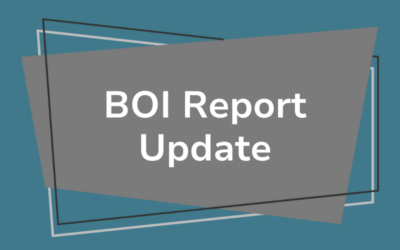Due to the severe winter weather conditions that impacted much of California and parts of Alabama and Georgia, the tax deadline for 2022 individuals and businesses, the Internal Revenue Service (IRS) extended its tax deadlines to October 16, 2023. Some parts of Georgia were additionally affected by Hurricane Idalia—see below for updated tax filing information if you live in the impacted areas.
In addition, October 16 is the final deadline for this year for those taxpayers who filed for regular tax extensions last April. That day is fast approaching, and with no additional extensions available, it is critical to get your taxes filed, or you will face penalties.
The October 16 extension applies to taxpayers who reside or have a business in the disaster areas designated by the Federal Emergency Management Agency (FEMA).
For those needing K-1 forms from a partnership, S-corporation, or fiduciary (trust) return, you should have received those returns already (the final deadlines were September 15 and October 2). If you have not yet received this necessary information, following up as soon as possible is crucial.
California Taxpayers Get More Time to Pay 2022 Taxes
On Monday, October 16, the Internal Revenue Service (IRS) again extended the tax deadlines for most California taxpayers to November 16, 2023.
If you live in the 55 counties impacted (all counties in the state except Lassen, Modo, and Shasta), you don’t have to file your 2022 tax returns or pay any taxes due until the new November 16 deadline.
You qualify for this extension if your address of record with the IRS is in one of those counties. And you don’t have to ask for the extension; it’s automatically applied to your account.
According to the IRS, these are the returns that qualify for the new deadline:
- 2022 individual income tax returns and payments, originally due April 18.
- For eligible taxpayers, 2022 contributions to IRAs and health savings accounts.
- Quarterly estimated tax payments usually due April 18, June 15, and September 15.
- Calendar-year 2022 partnership and S corporation returns, originally due March 15.
- Calendar-year 2022 corporate and fiduciary income tax returns and payments, originally due April 18.
- Quarterly payroll and excise tax returns, normally due May 1, July 31, and October 31.
- Calendar-year 2022 returns filed by tax-exempt organizations, normally due May 15.
The Consequences of Missing the New Deadline
The repercussions can be significant if you miss filing by the extended deadline. Late-filed individual federal returns are subject to a penalty of 5% of the tax due for each month or part of a month for which a return remains unfiled. This penalty can accumulate up to a maximum of 25% of the tax due. If you are required to file a state return and fail to do so, the state may also impose a late filing penalty.
Plus, you will continue to accrue interest on any outstanding balance due, and the current rate stands at 0.5% per month. This means the longer you delay filing, the more you might owe due to interest and penalties.
Additional Tax Filing Extensions
Other states have more recently been affected by weather and other natural disasters. Their tax filing (and payment due) deadlines have been extended.
According to the IRS:
- If you were affected by flooding in Illinois and Alaska, you have until October 31, 2023 to file.
- Those impacted by the flooding in Vermont have until November 15, 2023 to file.
- If you live or your business address, as registered with the IRS, is in Maui County in Maui, Hawaii, your tax filing deadline is February 24, 2024.
- Similarly, those living or with business addresses, as registered with the IRS, in the parts of Florida, South Carolina, and Georgia that were impacted by Hurricane Idalia, you also have until February 24, 2024, to file your taxes.
The IRS continually updates its list of disaster areas where tax extensions are offered. This list continues to be updated regularly. If you’re ever affected by a natural disaster, check out the disaster relief page on IRS.gov for updated information.
And, as usual, if you are a member of the military or otherwise serving in a combat zone, you typically have 180 days after leaving the combat zone to file returns and pay any taxes due.
Other Key Deadlines
In addition to the individual and business taxes due on October 16, you should be aware of the following deadlines:
- Foreign Bank and Financial Accounts (FBAR) Filings: If you had foreign financial accounts with an aggregate value that exceeded $10,000 at any point during 2022, you must electronically file a FinCEN Form 114, Report of Foreign Bank and Financial Accounts (FBAR). Initially, this report was due on April 18, 2023, but automatic extensions to October 16, 2023, have been granted.
- SEP-IRAs: For self-employed small business owners looking to set up and contribute to a SEP-IRA for the tax year 2022, your deadline is October 16, 2023. This is your last chance to make contributions. The contribution deadline for traditional and Roth IRAs for 2022 was April 18, 2023.
As the extended tax deadline of October 16, 2023, approaches, it’s crucial that you meet and pay your tax obligations. Missing this deadline can lead to penalties and interest, which can add up significantly. If you’re having problems with the filings, contact your accountant immediately.





